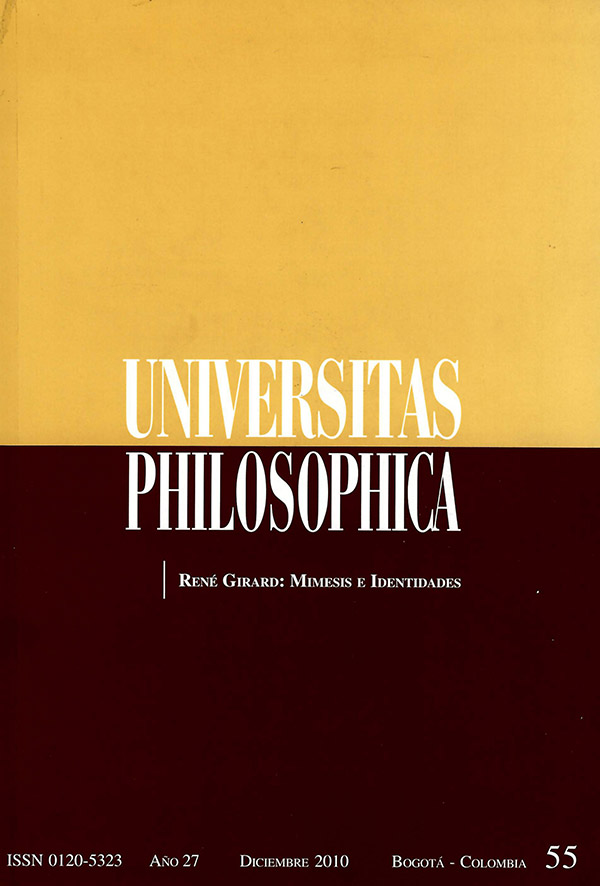Postmodern Subjectivity and Reconciled Identity a Theological Reception of Mimetic Theory
##plugins.themes.bootstrap3.article.details##
This article presents initial elements for a theological reception of mimetic theory in the context of the postmodern critique of instrumental reason. In connection with a phenomenology of subjectivity and the pragmatics of discursive ethics, René Girard contributes to critically analyze the problem of intersubjectivity as a key category within the late modern thought. In particular, through the analysis of the difficult constitution of subjectivity within liberal societies in the West, a theory of mimetic desire appears to account for the complex web of relations of desire, power and domination in which a subject builds its identity face to face to the others. The relevance of Christian faith in this context may be seen as a way to solve the enigma of the violent desire and to open new possibilities of our intersubjective constitution from the reconciliation that comes from the forgiving victim.
subjectivity, mimetic desire, violence, reconciliation, giftsubjetividad, deseo mimético, violencia, reconciliación, gratuidad


